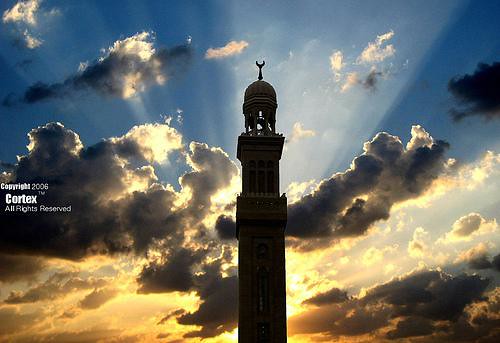Before I begin, I would like to make a disclaimer that this article deals with the actual laws of Islam, showing that Islam is a simple religion and not burdensome, this does not meanthat life will be easy for a practicing Muslim as Allah has promised to test each and every one of us. So keep in mind that although Islam is easy to practice if you commit yourself, your level of commitment will be tested by Allah.


- There is a misunderstanding amongst many people that Islam is difficult and a burden to follow. Such people either have an incorrect understanding of Islam or do not realize how easy the rules of Islam are to follow. Let us look at the basic teachings of Islam and see how simple, natural and easy it is to practice Islam.
The scholars of Islam have agreed that the general principle regarding things of this world is that everything is permissible unless proven otherwise. So the burden of proof actually falls on those who say that anything is prohibited. This applies to all worldly things, as for religious deeds, the deed must be proven or it will be considered an innovation. Proof for this principle can be found in the following verses,
- “Allah wishes to make things easy for you, and not to make things difficult for you,� [Surah Baqarah 2:185] and “We did not place difficulty in this religion.� [Surah Hajj 22:78]
- Also the following Hadith is proof of this principle:
- “Religion is very easy and whoever overburdens himself in his religion will not be able to continue in that way. So you should not be extremists, but aim to be near to perfection and receive the good tidings that you will be rewarded; and gain strength by worshipping in the mornings and the nights.� [Saheeh Al-Bukhari 1:2:38]
In fact, Imam Bukhari has a chapter in his Saheeh Al-Bukhari called “The chapter of the religion being easy� and ample proof for this point can be found in that chapter. - Firstly, the fact that everything worldly is permissible unless prohibited by sacred texts or deduction from them, is proof that Islam is not a difficult religion to follow, the amount of things that are permissible to do are far more than the obligations or prohibitions.Islam is not an ascetic religion that expects people to abandon the world and worship Allah all day in a cave, in fact, Islam prohibits such behaviour and encourages us to interact with society and live normal lives within the boundaries set by Allah, fulfilling our rights to Allah, to ourselves, and to the rest of creation.
- Islam has given rights to all creation; we are not to harm any human, animal, plant or even ourselves unjustly. We must stay away from all sources of vice and whatever leads to them and we must fulfill our basic obligations. If we do these things, we can enjoy the permissible things of this world like family, spousal relations, physical sports or whatever you enjoy as long as you do not break the rules of Islam.
- Islam is the natural religion; it appeals to our inner nature (Fitrah) and fulfills its basic needs without asking us to do anything unnatural. Try and find one ruling in the Quran and Sunnah that goes against human nature, you will not find it.
- Islam is not a burden and does not ask us to do anything that we are incapable of doing, we are not required to give up our personalities, social lives or money. We are not required to pray all night or fast every day, in fact such things are prohibited. Islam emphasizes that we live a balanced life fulfilling our obligations to Allah as well as our obligations towards people and even our own selves. Try and find one command or prohibition in Islam that is beyond human ability, there is no such ruling.
- One reason many people find Islam difficult to practice is because Satan beautifies evil deeds and makes good deeds look boring and difficult, thus we becomes lazy. Yet if one overcomes this obstacle he will find that the deeds emphasized by Islam bring true inner peace and are not too difficult, and he will begin to see the evils and wastage involved in committing sins. Take that first step and see for yourself.
- Islam obliges us to worship Allah only, pray five times a day, fast one month a year, give two and a half percent of our excess wealth in charity, make Hajj once in our lifetime if possible and in general to be good to the rest of creation, stay away from the prohibited matters and have good character. None of these things are beyond human capabilities or unnatural, there is nothing prohibited that is necessary in our lives, rather only that which is harmful to human life is prohibited.
- Another important point to remember is that Allah is Ar-Rahman (Most Merciful) and Al-Ghafoor (Most Forgiving) which means that if we try our best to practice Islam, and still fall into error due to our human nature and own weakness, the door to Allah’s forgiveness is always open for those who repent.
- The basics of Islam are simple to understand and practical to implement, making Islam a universal religion that can be practiced by anyone regardless of his or her intellectual or physical capabilities. It is this pure simplicity of Islam that makes it so universally appealing and it is one of the many reasons that so many people around the world from different backgrounds convert to Islam.





